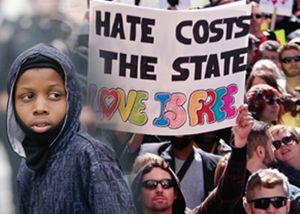
What do the Preppers, The Occupy Wall Street demonstrations, and the Ferguson protests have in common? They are each social actions that embody a profound sense of desperation and anxiety over the immediate future. Social collapse, soaring income inequality, racial tensions — why are there so many difficult issues today, and why does each one appear so intractable? Despite the material wealth and prosperity that is possible in our society, why do we feel as if we are standing on the brink of an abyss?
One would hope that we could discuss our problems, form consensus, and plan for a common future. At this point, however, the political process appears broken, and there seems no solution to many of the challenges we face. The technological revolution seems like both a blessing and a curse — a Pandora's box that promises so much good but delivers misery instead.
Previous periods of crisis - like the 1930s and 1970s — have led some to argue that we need a new vision, a changed social contract, or a spiritual and ethical reawakening. The present crisis has also produced such authors. The first Catawba College Community Forum of the 2015-16 academic year will present the environmental and economic perspectives of two such writers, Joanna Macy and David Korten, as they have tried to envision something they call "The Great Turning."
Our speaker will be Dr. Eric R. Hake, Professor of Economics in the Ketner School of Business at Catawba College. Dr. Hake also serves as Secretary/Treasurer for the Association for Evolutionary Economics.
Born in Ruston, La., and raised in Knoxville, Tenn., he received an undergraduate degree in history and a doctorate in Economics from the University of Tennessee. Dr. Hake first became interested in social movements while studying the Industrial Revolution as an undergraduate. His academic interests focus on economic history, the history of economic thought, and monetary theory.
Dr. Hake remarks that he "believes a necessary component of the Great Turning would be a rejoining of our social and economic lives — a re-embedding of our economic attitudes and behaviors within a larger social and moral context."
Join us at the Catawba College Community Forum on Tuesday, September 15, 2015 at 7:30 p.m. in Tom Smith Auditorium of Ralph W. Ketner Hall for this provocative discussion of the "American crisis" of today. Admission, as always, is free.
